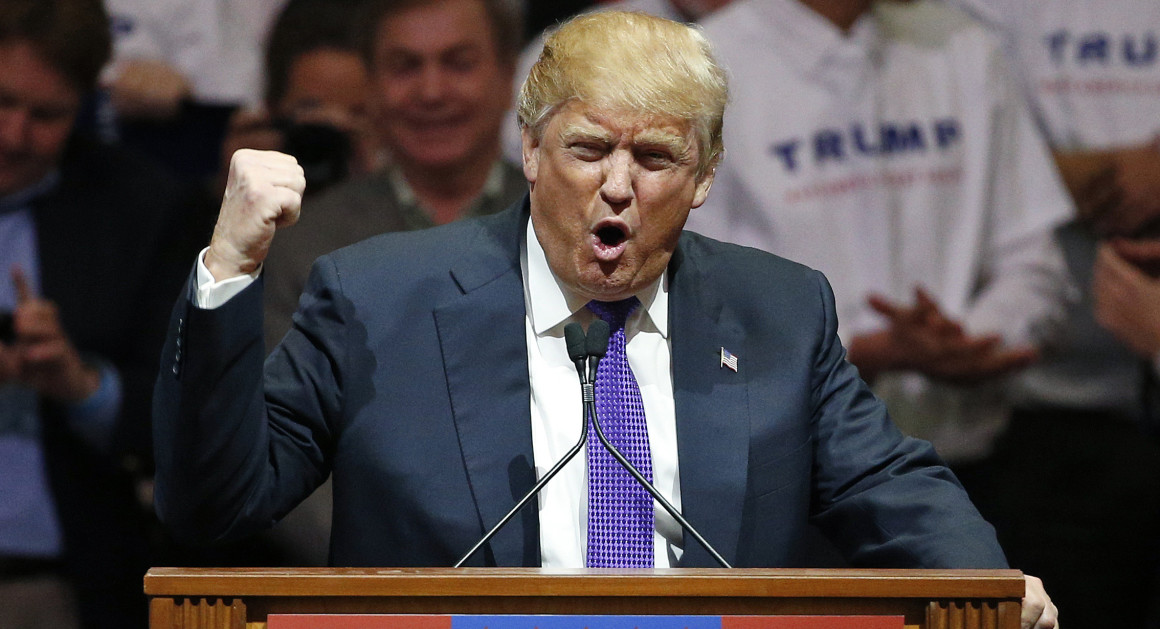
Donald Trump enters Nevada looking to extend his current two-state winning streak — and he’s the odds-on favorite in America’s gambling capital.
The more heated battle is for second place, as both Ted Cruz and Marco Rubio jostle for momentum ahead of the rush of states that vote on March 1 — and for the crucial mantle of the best candidate to eventually take down Trump.
Turnout on Tuesday is expected to be minuscule, even as the 2016 Republican campaign has set records in the first three states. In 2012, only 33,000 Republicans showed up to caucus in Nevada, which was down from 44,000 four years before that.
Caucuses are notoriously difficult to poll and predict, especially in states like Nevada without a long history, but Trump has led public surveys handily.
Still, Trump, who lost the Iowa caucuses despite leading in most public polls ahead of the vote, entered Nevada warily.
“The caucus system is dangerous, to use a very nice word,” Trump said in a radio interview with Hugh Hewitt on the eve of the election. "It’s sort of a dangerous system.”
Low turnout puts a particular premium on early organizing, in which both Rubio and Cruz have quietly invested. Cruz has the backing of the state’s Republican attorney general, Adam Laxalt, and has appealed to Nevada’s rural voters with a television ad highlighting his opposition to the fact that the federal government controls 85 percent of the state’s land. (John Kasich targeted the same issue in TV ads, as well).
Rubio, meanwhile, has tried to connect with Nevada voters from his time living there as a child in the late 1970s and early 1980s, telling audiences about how his father worked as a bartender at Sam's Town and his mother as a maid at the Imperial Palace. (He still has numerous cousins in the state.) Rubio’s family’s dabbled with Mormonism during those years and Rubio hopes an active Mormon political network that lifted Mitt Romney to a landslide win, with 50 percent of the vote, turns out for him.
Stumping in rural Nevada on caucus day, Trump continued to boast of his strong poll numbers in states coming up on the voting calendar, including Cruz's home state of Texas. He warned supporters to be wary of “dishonest stuff” from Cruz, whom he dubbed a "baby" and a "liar."
And Trump issued a warning shot to Rubio to beware taking him on: The two have largely avoided skirmishes but that could change if Rubio builds on his second-place finish in South Carolina on Saturday.
“When he hits me, ugh, is he gonna be hit,” Trump said. “Actually, I can’t wait.
During a rally in Las Vegas Tuesday, Rubio alluded to Trump several times but didn't attack him head on. The Florida senator emphasized that while voters have a right to be angry, the election has to be about more than that.
“Frustration’s not a plan. Being angry’s not a plan,” Rubio said. "So this election can’t just be about making a point. It can’t just be about electing the loudest person in the room because that alone will not solve the problem.”
Rubio has received a rash of endorsements since Jeb Bush dropped out of the race on Saturday night, including from Sen. Dean Heller, who is Mormon, and Rep. Mark Amodei.
Cruz’s campaign, meanwhile, has mocked Rubio’s status as the favored son of the GOP establishment, and for his inability to win a state. Early in the cycle, South Carolina and Nevada had been targeted as potential Rubio wins, but Trump’s dominance has proved too thorough.
"Rubio’s stated strategy is to lose the first four primary states, lose every state on Super Tuesday, then lose every state on March 5, then lose every state on March 8, and then finally win in Florida (where he's currently polling third, behind Donald Trump and Ted Cruz),” Jason Johnson, Cruz’s top strategist, wrote in a memo on this week.
Despite being one of only four states to vote in February, Nevada has gotten short shrift this cycle, especially on the GOP side, coming just three days after the highly competitive South Carolina primary and only a week before Super Tuesday, when a dozen states with far more delegates at stake will vote.
Ben Carson and Kasich are widely expected to finish at the bottom of the field.
- Publish my comments...
- 0 Comments
